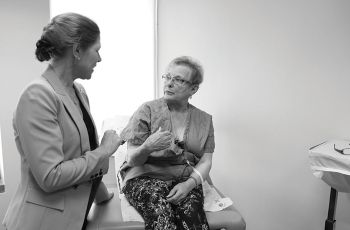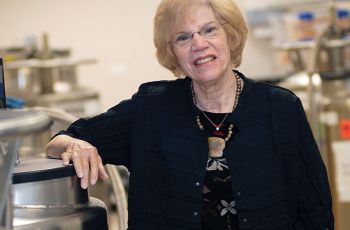News Archive
Dr. Michael G. Knight, Patient Safety Officer at The George Washington University Medical Faculty Associates, discusses obesity and its harmful affects.
Q&A with Camp Kesem at the George Washington University
The proteomics core laboratory at Children's National Research Institute is located in the Center for Cancer and Immunology Research.
Dr. Rachel Brem discusses how a mammogram can save a life and how the technology has evolved.
Dr. Keith Mortman updates listeners on everything they should know about lung cancer treatment and research.
A diagnosis of breast cancer is a scary moment in any person’s life, and going through treatment can be difficult on both the mind and the body, but at the George Washington University (GW) Cancer Center, the journey can be made a little easier thanks to support from current and former patients…
At the George Washington University (GW) Cancer Center, listening to the needs of the community is a vital responsibility. That’s why in the city that has among the highest percentages of individuals who identify as lesbian, gay, bisexual, transgender, queer, or intersex (LGBTQI), the GW Cancer…
Humans, by nature, are complex; they’re sometimes puzzles to be studied and solved. On paper, they can be divided and classified, neatly sifted into categories based on codes and diagnoses and demographics; this makes them more decipherable, but no less fascinating.
HIV/AIDS currently affects more than 35 million people worldwide. Infection with HIV is associated with a wide range of long-term health complications, including the development of cancer, which is a major cause of death among individuals living with HIV.
Dr. Long is an accomplished surgeon and assistant professor of obstetrics and gynecology at the GW School of Medicine and Health Sciences. Her expertise includes administration of chemotherapy, targeted therapies and immunotherapy for gynecologic cancers. Her clinical interests include complex…









